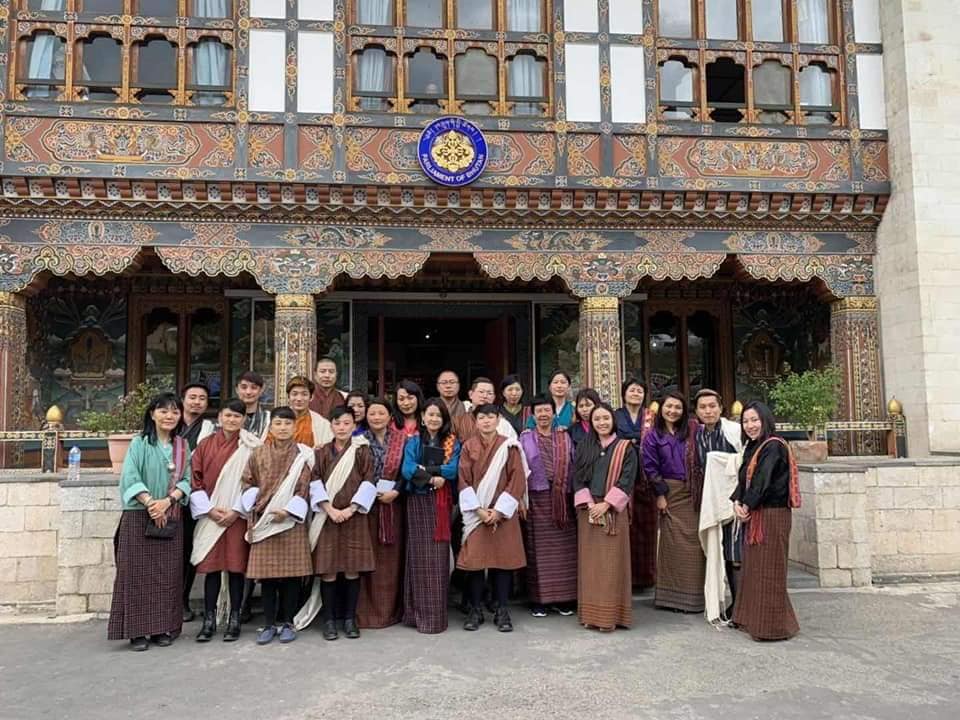Nothing is permanent, so everything is precious. Here’s a selection of some happenings—fleeting or otherwise—in the Buddhist world this week.
Good News for Pride Month: Bhutan Moves to Decriminalize Homosexuality
In a move fit for Pride Month, Bhutan’s parliament has taken a major step toward decriminalizing homosexuality, Reuters reports. The legislative body’s lower house, the National Assembly, on June 7 passed a bill to repeal a section of the Himalayan kingdom’s penal code banning “unnatural sex,” which in practice has meant homosexuality. Now the legislation moves to the upper chamber, the National Council, where activists expect that lawmakers will vote in favor of the bill. If it passes, the act will be presented to the king of Bhutan for approval. Activist Tashi Tsheten, the director of LGBT+ advocacy group Rainbow Bhutan, told Reuters, “This is our first journey toward equality.” Human Rights Watch’s South Asia director Meenakshi Ganguly called it a “a welcome and progressive step” by the Buddhist-majority kingdom in a religiously conservative region.
Teachers Will Make the Highest Salary in Bhutan
In other news from Bhutan, the government announced that they are flipping the unofficial civil service “hierarchy” by raising the salaries of teachers and health workers above that of administration officials, according to Buddhistdoor Global. The reforms increase salaries for educators, doctors, nurses, and other medical workers, but formally promote teachers to the highest-paid civil servant positions in the country. Health Minister Lyonpo Dechen Wangmo told the Bhutanese that the move to prioritize education and health is in line with the country’s Gross National Happiness, a philosophy of governing that prioritizes sustainable development and uses national surveys to measure the psychological well-being of its citizens.
Australian Government Honors Ajahn Brahm for Work on Gender Equality
The popular Buddhist teacher Ajahn Brahm received a high honor from the Australian government for his “significant service to Buddhism, and to gender equality.” Each year on the Queen’s Birthday, the British commonwealth appointments notable people to be new members of the Order of Australia in recognition of their contributions to society. This year’s list included Ajahn Brahm, who in 2009 ordained four Buddhist nuns—the first in Australia. As a result, the senior monks in his Thai Forest tradition of Theravada Buddhism expelled him from the lineage.
Related: Putting an End to Buddhist Patriarchy by Ajahn Brahm
China’s Panchen Lama Makes First Trip Overseas
The Chinese-selected Panchen Lama, Gyaltsen Norbu, made his first trip overseas to Thailand in mid-May, attending events and giving a speech at a university in Bangkok, according to the New York Times, citing a June 10 report in a state-run newspaper. Gyaltsen Norbu, 29, told the China News Service, that the trip made him further realize the “greatness of the motherland and the Chinese Communist Party.” The Panchen Lama is one of the most important figures in the Gelug school of Tibetan Buddhism, second only to the Dalai Lama. For generations, the Panchen Lama has been responsible for identifying the reincarnation of the Dalai Lama, who then recognizes the next incarnation of the Panchen Lama. But in May 1995, three days after His Holiness the 14th Dalai Lama identified Gedhun Choekyi Nyima as the 11th Panchen Lama, Chinese authorities arrested the then-six-year-old boy, and he has not been seen in public since. In December of that year, a Chinese committee selected Gyaltsen Norbu to hold the mantle instead. In April, the Dalai Lama said that he has seen evidence that the now-30-year-old captive is still alive.
Beijing Resumes Expulsions of Monk and Nuns from Yachen Gar
China has initiated a new wave of expulsions from Yachen Gar, a Tibetan Buddhist study center in a remote part of Sichuan province, according to Radio Free Asia (RFA). The mandatory evacuations target monks and nuns who migrated from outside the region to join the Buddhist complex. Tibetan sources describe the expulsions as an “ongoing process,” and a Tibetan advocacy group has called the removals “an unfolding political strategy” on the part of Chinese officials. RFA notes that a similar tactic of expulsion was used at Larung Gar, the world’s largest Buddhist institute also in Sichuan province, where, in 2017 and 2018, Chinese authorities forcibly deported at least 4,820 Tibetan and Han Chinese monks and nuns, and demolished over 7,000 homes.
Thank you for subscribing to Tricycle! As a nonprofit, we depend on readers like you to keep Buddhist teachings and practices widely available.
